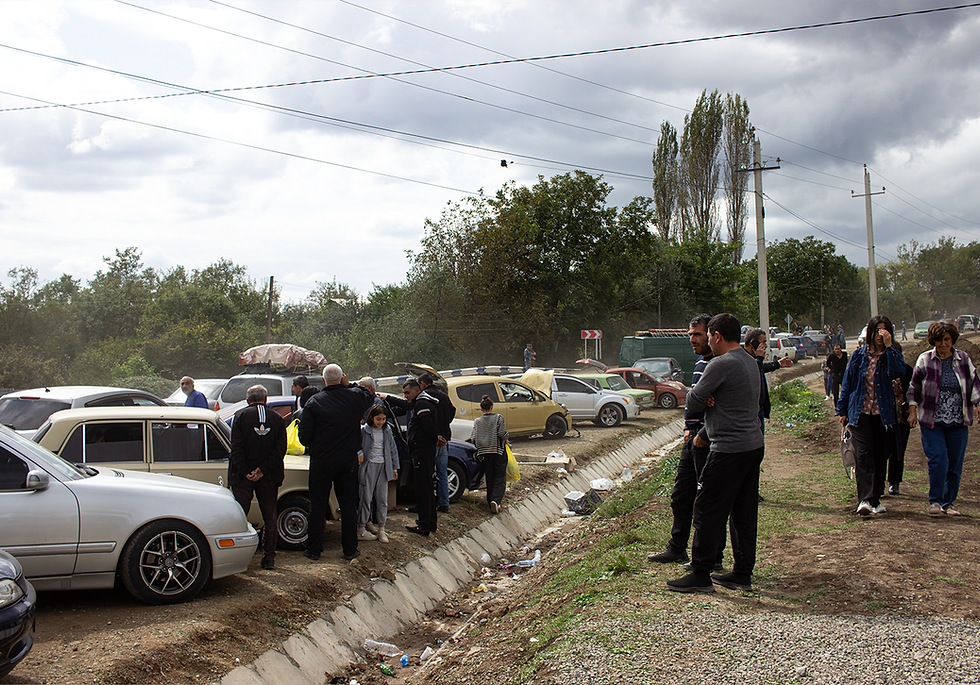Armenia Rejects Islamic Nations’ Pro-Azerbaijan Statement, Warns of Threats to Sovereignty
- The Armenian Report Team

- Jun 23
- 3 min read

Armenia has strongly rejected a recent declaration by the Organization of Islamic Cooperation (OIC), accusing the 57-member bloc of siding with Azerbaijan and undermining Armenia’s territorial integrity. The statement, adopted over the weekend during a ministerial summit in Istanbul, urged Armenia to accept Azerbaijan’s terms for a peace treaty—but for many in Armenia, it read more like a political ultimatum than a call for peace.
The Armenian government responded swiftly and firmly, calling the declaration “extremely one-sided,” “distorted,” and harmful to real peace in the South Caucasus. Yerevan criticized the OIC’s support for Azerbaijan’s growing list of demands, especially those aimed at rewriting Armenia’s constitution and promoting what Armenia says are fabricated territorial claims.

In its Istanbul declaration, the OIC foreign ministers called on Armenia to “desist from undermining the sovereignty and territorial integrity of Azerbaijan.” They also demanded that Armenia “address remaining legal and political obstacles” to a peace deal—a clear reference to Azerbaijan’s insistence that Armenia remove all mentions of Nagorno-Karabakh from its constitution. Such changes, Armenian Prime Minister Nikol Pashinyan has noted, can only happen through a nationwide referendum, likely not before 2027.
The OIC declaration also pushed for the return of Azerbaijanis who once lived in Armenia during the Soviet era and criticized Armenia’s refusal to “engage in dialogue with the Western Azerbaijani Community”—a term Armenia says is being used as cover for dangerous and false territorial claims.
In a detailed statement, Armenia’s Ministry of Foreign Affairs condemned the OIC for repeating Baku’s narrative and for failing to recognize Armenia’s clear commitment to peace.
“We draw the attention of the OIC member states to the fact that the talk of ‘Western Azerbaijan’ under the guise of human rights is a clear claim by Azerbaijan to the sovereign territory of the Republic of Armenia,” the ministry said. “There is no and there can be no so-called ‘Western Azerbaijan’ on the territory of the Republic of Armenia.”
The Armenian government also pushed back against Azerbaijan’s claim that hundreds of thousands of Azerbaijanis were forced out of Armenia in the 1980s. The Ministry explained that these individuals left voluntarily at the end of the Soviet era, often selling or exchanging property or receiving compensation from the Armenian government.
In contrast, ethnic Armenians in Azerbaijan faced violent pogroms, beatings, and killings in cities like Baku and Sumgait. In 2023 alone, over 115,000 Armenians were forcibly displaced from Nagorno-Karabakh—a mass exodus the Armenian government and human rights groups have labeled as ethnic cleansing.

Yerevan also expressed concern that the latest OIC declaration deviated sharply from earlier statements in 2024 that encouraged peace between Armenia and Azerbaijan. Instead of building on those messages, the Istanbul declaration adopted a tone of preconditions—insisting that Armenia must change its laws, its rhetoric, and even its history.
“We remind OIC member states that Armenia has repeatedly confirmed its readiness to sign the agreement without delay,” the Foreign Ministry stated, emphasizing that Yerevan has already proposed consultations on a time and place to finalize the treaty. “It is Azerbaijan that continues to introduce artificial obstacles.”
The Armenian government also condemned an OIC resolution on cultural heritage, which it said ignored the widespread destruction of Armenian monuments in areas now under Azerbaijani control. The resolution, Yerevan added, dangerously frames cultural preservation through a religious lens, which risks inflaming tensions instead of easing them.
“The ongoing erasure of Armenian churches, cemeteries, and historic sites in Nagorno-Karabakh is not just cultural damage—it is part of a strategy to erase our presence,” said one Armenian official who asked not to be named. “The OIC has chosen to stay silent on that reality.”
Armenian opposition leaders said the OIC declaration proves the failure of Prime Minister Pashinyan’s policy of appeasement. They criticized his soft stance on Nagorno-Karabakh and his recent visit to Istanbul, which took place just hours before the OIC issued its statement.
Despite the sharp rhetoric, Armenia continues to advocate for a peaceful resolution to the Armenia-Azerbaijan conflict. The Ministry reaffirmed its readiness to sign a peace treaty—without preconditions—and called on the international community to support a fair and balanced approach.
“There is a real opportunity for peace in the South Caucasus,” the Foreign Ministry concluded. “However, actions like these by international organizations do not help realize that potential. Armenia remains committed to the peace agenda and expects constructive support from its international partners, including the OIC, toward establishing lasting and sustainable peace.”
—
Support independent reporting from the region by subscribing to The Armenian Report. Our team is funded solely by readers like you.





Comments